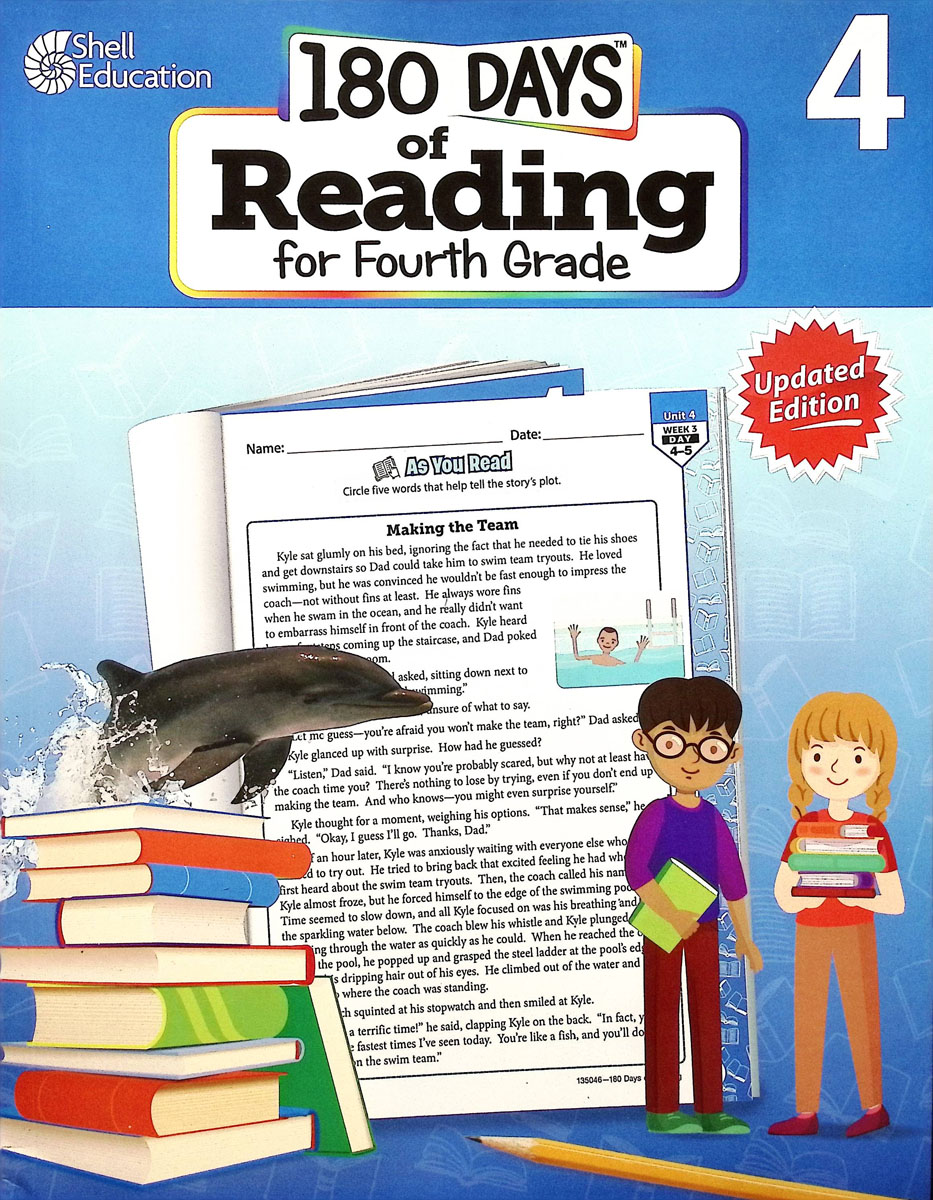So, you'd
like to use "real" books in your reading program but are a little
concerned about missing those core reading skills lessons that are part of most
basal reading programs. Here's a great remedy offering short, easy lessons that
you can use in tandem with reading those classic children's books. Like its math
counterpart (180 Days of Math), each book provides diagnostics, practice and
assessments to meet state reading skills standards by grade.
Revised 2nd
edition worktexts offer a similar format and pace as the previous edition. One
notable difference is the use of color in the PK-5th grade books, which are
more visually appealing for younger learners. The revised editions provide a greater
focus on the science of reading in the building of reading comprehension and
the units have a slightly different structure. Each grade level worktext is
organized into 12 units, with each unit offering a 3 week-5 day per week
format. Week 1 focuses on nonfiction readings, week 2 fiction readings, and
week 3 non-traditional resources like advertisements, letters, poems, etc.
Weeks 1-2 students complete the reading lesson by answering questions which may
be multiple choice, short answer, response questions, or completing graphic
organizers. During week 3, students will read the non-traditional text, and
will answer questions or complete close-reading and writing activities. We
do still offer the first edition at some grade levels. The first
editions are organized differently with the exercises organized in 5-day
groups. The first three days present a brief fiction or nonfiction passage,
followed by four or five questions (depending on grade). These are very short
to read and complete. The fourth day has a longer selection with more questions
to answer. On the fifth day, your student will re-read the final selection and
respond to it using the provided prompt. First editions do not offer the
colorful workbook pages in the lower levels.
Answers to
all exercises are in the back of the book. Since questions are presented in a
predictable pattern of skills, you can quickly diagnose any reading skill
deficiencies by noting the number of the question(s) missed. Reading skills
practiced are:
- reading
comprehension/close reading through paired texts
-
identifying main idea and theme
-
interpreting meanings and tone of words and phrases
-
determining author's purpose and point of view
- applying
phonics and word-analysis skills
- making logical
inferences
-analyzing
figurative language
-summarizing
key details and ideas
- responding
to literature
Recording
form masters are included as additional downloads that can be accessed with
information from the book. Also included as bonus downloads are the Standards
Correlations Chart, writing rubric, fluency rubric, and class/individual
analysis sheets. Reproducible for a single classroom. Text material presents
secular themes, including evolutionary content. ~Janice/Deanne


